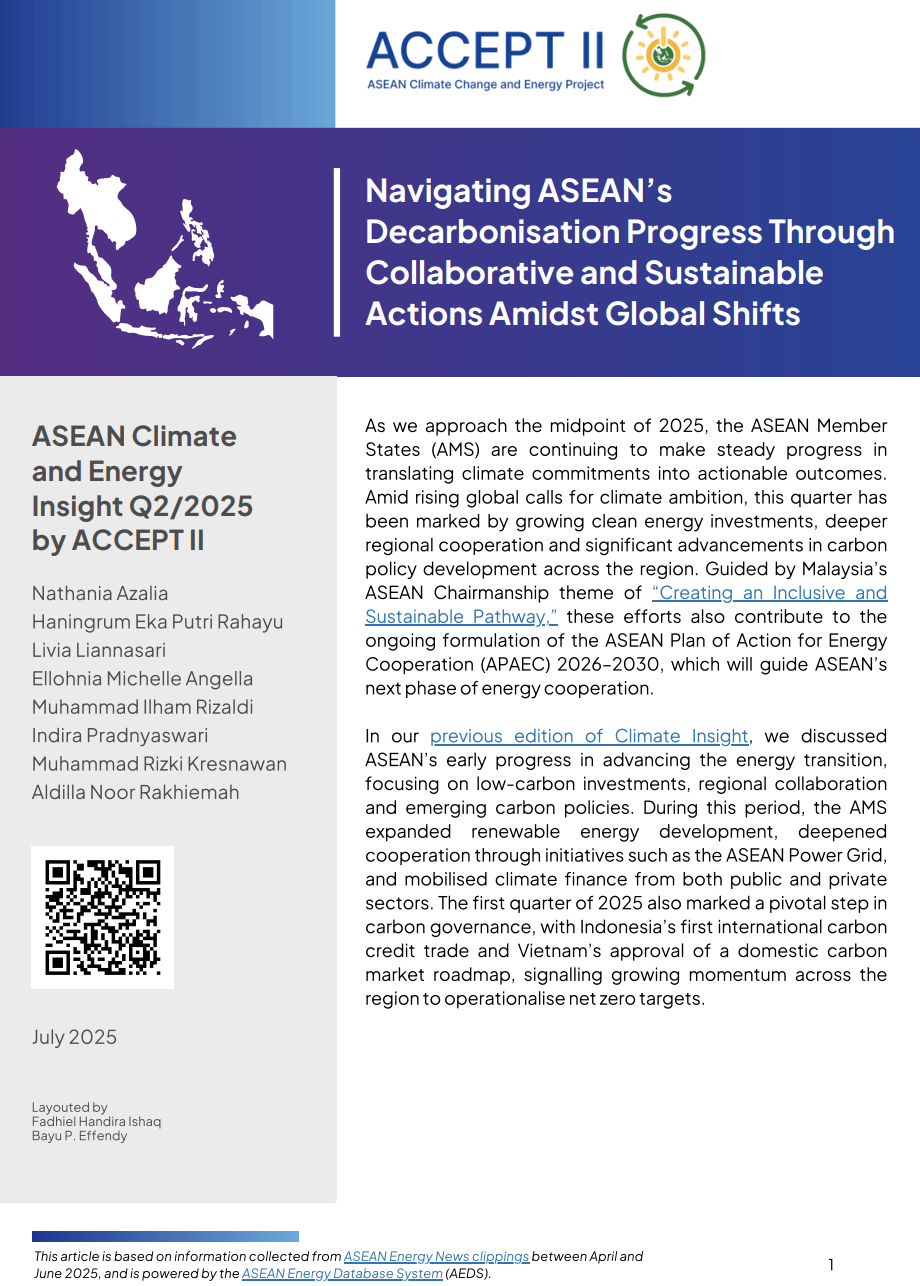Navigating ASEAN’s Decarbonisation Progress Through Collaborative and Sustainable Actions Amidst Global Shifts

Category
Tag
Author
Nathania Azalia, Haningrum Eka Putri Rahayu, Livia Liannasari, Ellohnia Michelle Angella, Muhammad Ilham Rizaldi, Indira Pradnyaswari, Muhammad Rizki Kresnawan, Aldilla Noor Rakhiemah